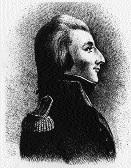The complexities of life—personal and historical
Published in Issue 1 (Spring 1998), Letters, Letters, Volume 6 Sir,—Your Winter 1997 issue, the first I have read, made fascinatingreading and reminded me how involved in Irish history my own family hasbeen. It is sixty years since my parents and my brothers and sisterscame to England in January 1938, after my father’s farm failed, but itis only in my recent retirement years that there has been the leisureand inclination to review the family past in a wider historicalperspective.
Sir,—Your Winter 1997 issue, the first I have read, made fascinatingreading and reminded me how involved in Irish history my own family hasbeen. It is sixty years since my parents and my brothers and sisterscame to England in January 1938, after my father’s farm failed, but itis only in my recent retirement years that there has been the leisureand inclination to review the family past in a wider historicalperspective.
The first paragraph of ‘Fianna Fáil and Arms Decommissioning1923-32’, by John Horgan, brought to mind a discussion I had with mymother’s brother at his farm in County Limerick over twenty years ago.He was then approaching eighty, and tidying up some of the unfinishedbusiness of his life. We had met during summer visits in previous yearsbut had never discussed the ‘Troubles’. On that occasion he told me hehad pointed out to his oldest son the place on the farm where hisweapons and ammunition were buried after the Civil War.
My father spent three months in Limerick Prison in 1920 for his IRAactivities, but never told his children what he did, except that he wasin intelligence. My mother was in Cumann na mBan and was fined forrescuing a Tricolour from a British soldier who had removed it from thecoffin of an IRA man. Although my uncle was a die-hard IRA Civil Warman, my father was a political moderate and became a Fine Gaelsupporter.
Family relationships reflected the complexities of Irish society.When my father’s father died at the young age of thirty-six, mygrandmother re-married to a retired RIC officer in 1903. My great-uncleFrank B. Dineen, who was an all-Ireland champion athlete in the 1880s,was fourth President of the GAA from 1895-98.
Until we left for England in 1938, my younger brothers and I wentto the National School at Bruree, where Éamonn de Valera had been apupil. He visited the school around 1937 causing great excitement. DeValera’s mother’s people lived across the fields from our farm.
The ultimate historical irony has to be my service in the RAF from1945 to 1948. Twenty-five years after my father was imprisoned forthree months by His Majesty’s forces I served in those forces for threeyears. But having lived on the Essex side of the Thames flight corridorfor German planes bombing London, living for months in a bomb-damagedhome, and having seen the mind-scarring pictures of the British Army’sliberation of Bergen-Belsen I was proud to do so. But it did not makeme any less proud of my parent’s service in the cause of Irish freedom.
I received the best education of my life when at the ages ofnineteen and twenty I was with the British occupation forces in Germanyfrom 1947-48 and saw the horrific aftermath of a modern war and thesuffering of the innocent along with the guilty.—Yours etc.,
FRANK DINEEN
Essex
















